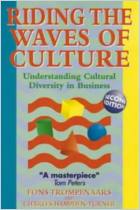
When Cultures Collide
Managing Successfully Across Cultures
Read or listen offline
Amazon KindleRecommendation
Richard D. Lewis, an expert on cross-cultural and language training who has tutored clients from Swedish corporate executives to the Japanese Imperial Family, discusses the need to consider cross-cultural differences in managing any company in today’s global world. He suggests a broad model you can use to characterize different national characteristics as linear-active, multi-active, and reactive. These traits shape attitudes toward time, leadership, team building, and affect a range of organizational behaviors. Lewis includes brief national profiles you can refer to when doing business away from home. This in-depth book covers common patterns in different cultures, and offers many examples of how different groups act under different situations. getAbstract recommends this book to top executives, managers and anyone who works in a multicultural business environment, as well as to general readers with a yen for informed people watching.
Summary
About the Author
Richard D. Lewis is chairman of Richard Lewis Communications, an international institute of cross-cultural and language training. His clients include Deutsche Bank, Mercedes Benz, BMW, Fiat, Gillette, Pfizer, Andersen Consulting, Nestle, Nokia, Volvo, Saab, IBM and a dozen government industries. He spent five years in Japan, where he was the tutor for the Empress Michiko and other members of the Japanese Imperial Family.






















Comment on this summary or Начать обсуждение